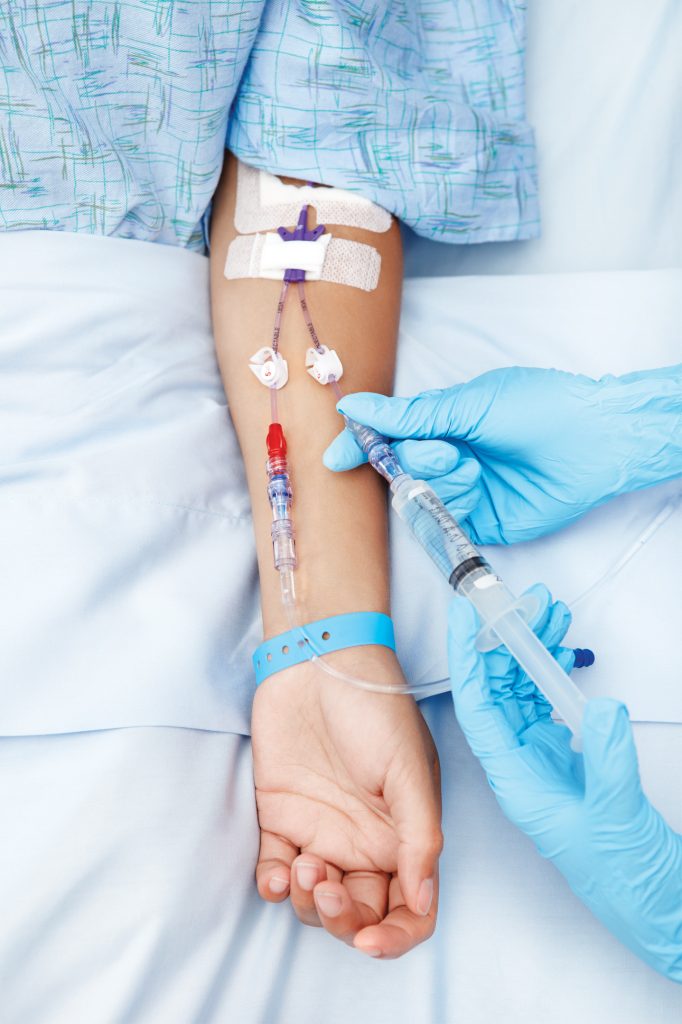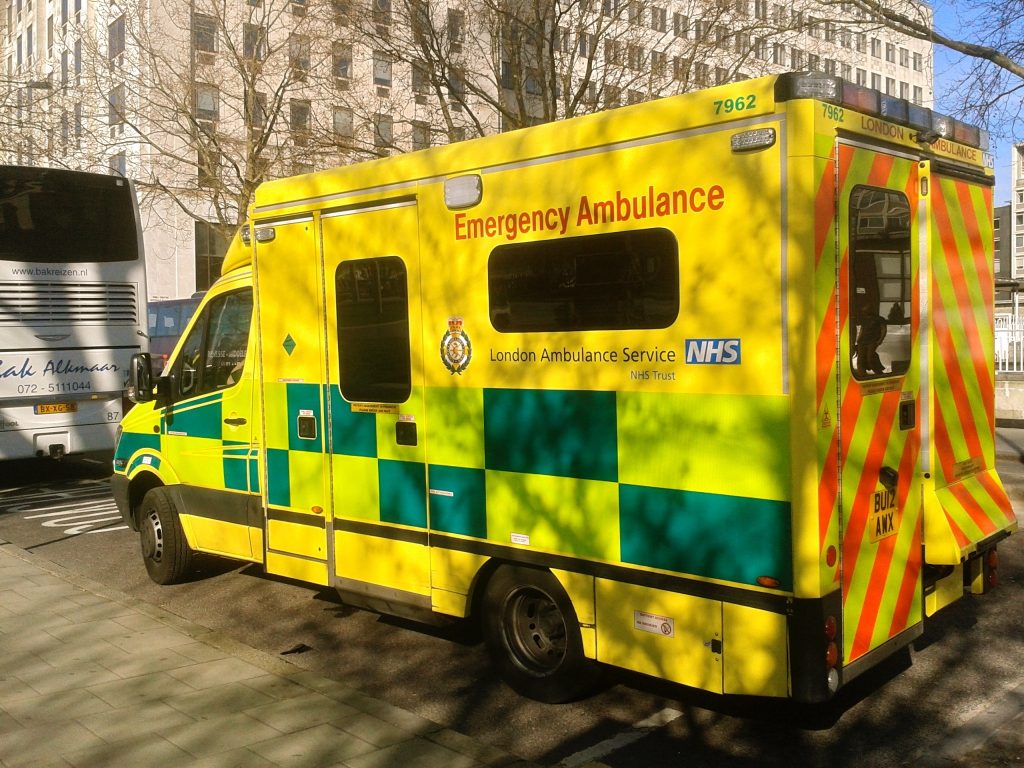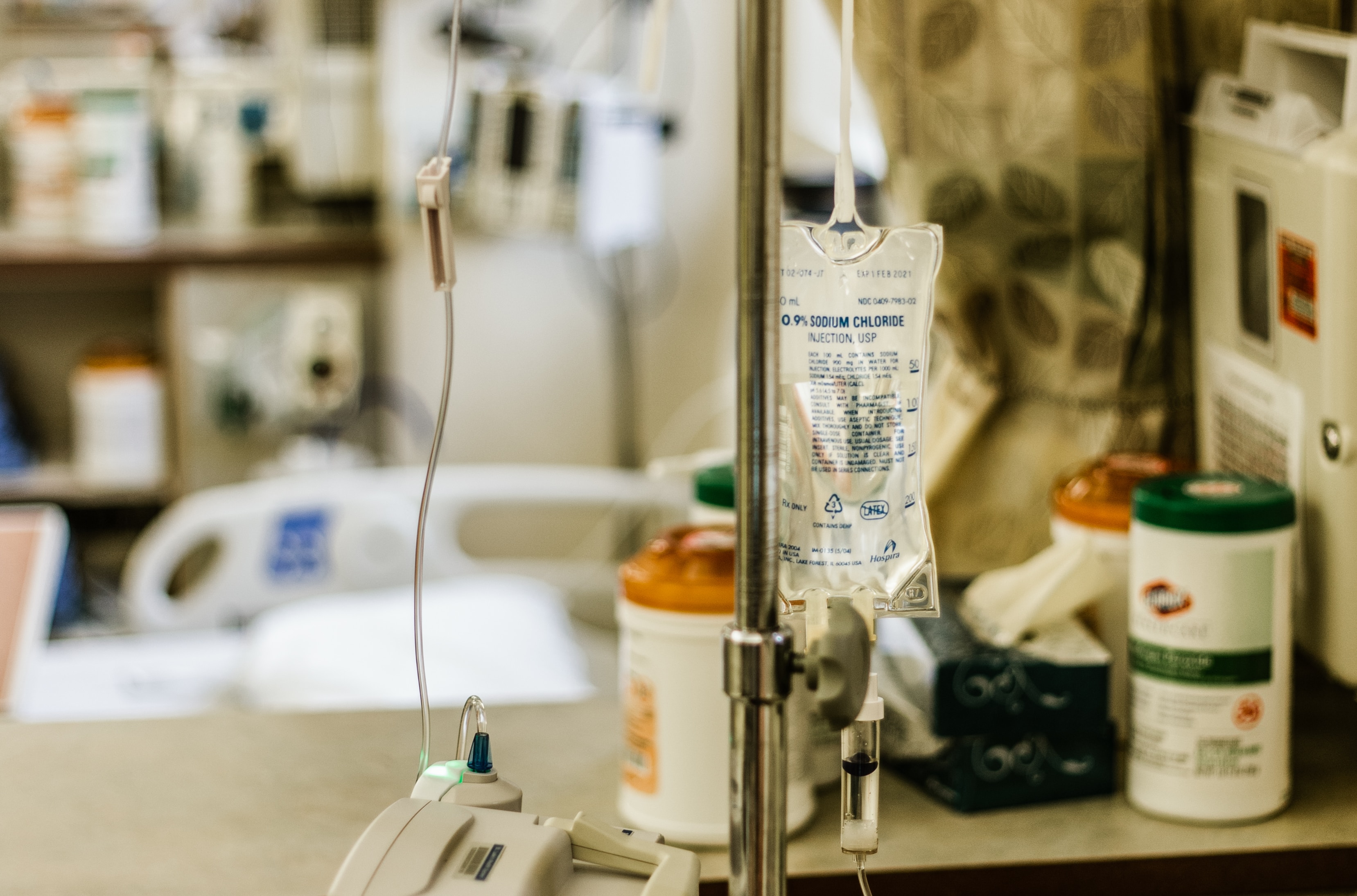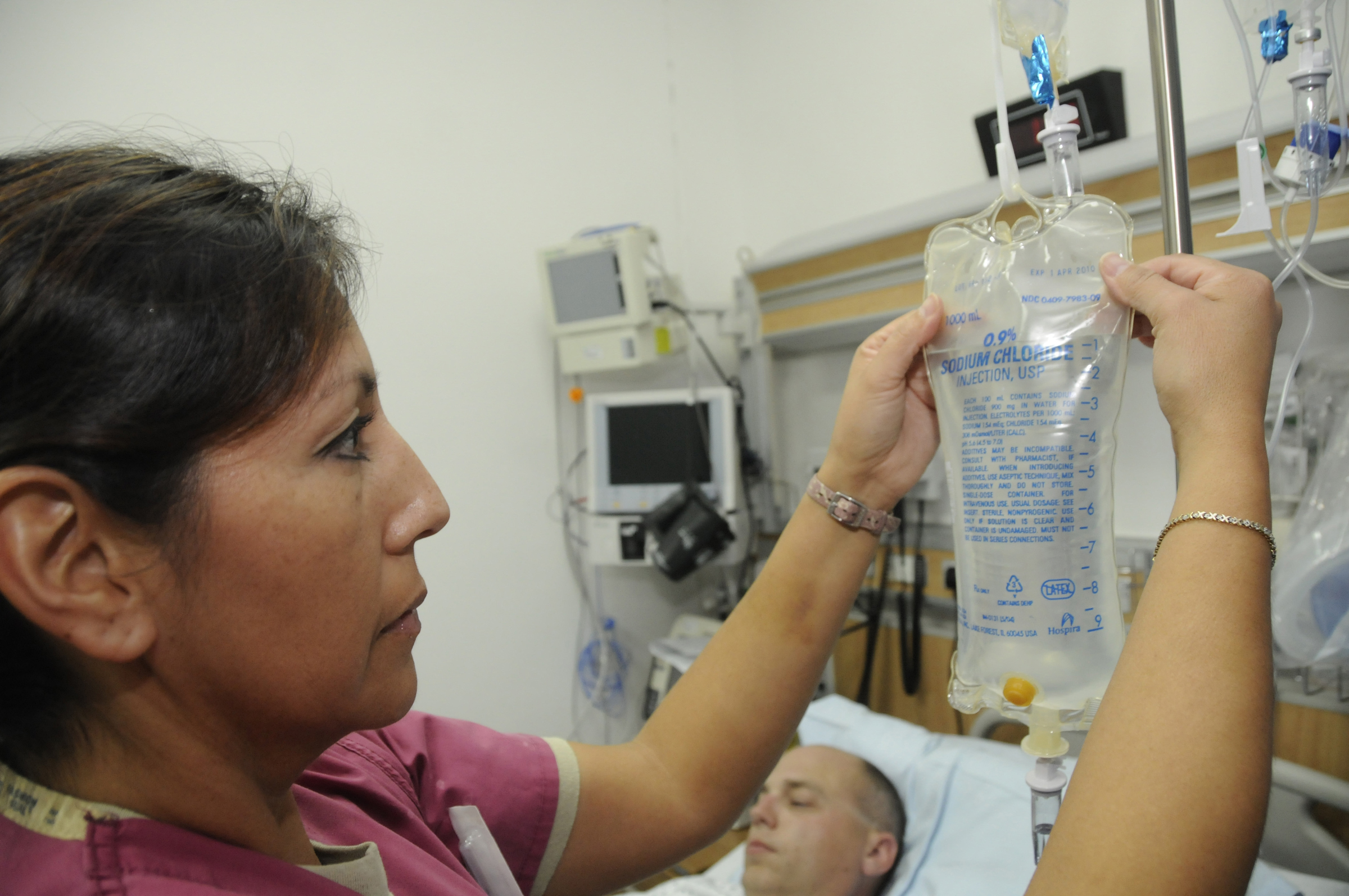NHS leaders in England have declared a shortage of intravenous fluids supplying hundreds of patients all over the country a national emergency incident.
The fluids are vital to patients whose bodies cannot digest food solids and are reliant on an intravenous feed called total parenteral nutrition (TPN).
The shortage comes after restrictions were imposed on company Calea, which produces TPN for patients in England and Wales, following an inspection of its manufacturing site by safety body the Medicines and Healthcare Regulatory Agency (MHRA).
News of the shortage was revealed by the Health Service Journal (HSJ), which has seen internal letters sent by senior members of NHS staff to NHS Trusts and affected patients.
These include a letter sent by national patient safety director Aidan Fowler, who said a national incident management team had been formed and the shortage had been “formally designated” an emergency incident.
The HSJ reported that it had spoken to some patients who have gone for days with no feed and found that a number of them, including a child, have been admitted to hospital because they were “effectively being starved of vital nutrients”.
Why have fluid supplies been disrupted?

Image Credit: Wikimedia Commons.
The MHRA found bacterial contamination in the production area at Calea’s site and said that production processes did not meet its guidelines as set out in 2015.
“When our inspectors identified this issue, we requested that Calea take immediate action to change their manufacturing process to ensure compliance with the MHRA’s published standards,” said the MHRA in a statement on 26 July 2019.
“This has led to a reduction in output while they consider longer term changes to their processes.
“Whilst no defective products have been identified to date, the changes to the production process are a precautionary, but necessary measure, needed to ensure product safety is maintained.”
Patients Hospitalised Over Intravenous Fluids Shortage

Image Credit: pxhere
BBC News has spoken to people with intestinal problems affected by the incident.
“My life is in a lot of danger right now,” Lauren Mitchell, 21, Essex, told BBC News.
Mitchell, who has chronic intestinal pseudo-obstruction, has been reliant on TPN since she was seven years old.
My life is in a lot of danger right now.
Lauren Mitchell, who relies on intravenous fluid feed
Her weekly supplies of TPN have been stopped and she is currently using an “off the shelf” alternative, which has left her feeling tired, dizzy and nauseous.
“This is a national crisis,” she told BBC News.
Mitchell added: “If diabetics’ insulin was taken away, then there would be uproar – but because no-one knows what TPN is, no-one’s bothered and no-one knows how serious this is”.
RightsInfo has contacted NHS England for comment.
A spokesperson for Calea said: “Following a routine MHRA inspection in June 2019, we were directed to change the process by which we add trace elements and vitamins to our parenteral nutrition bags, in order to align with latest standard industry practice. As a result, the time taken to produce bags has increased considerably and this has, unfortunately, affected the supply to patients.
“On July 22, Calea informed the NHS of a voluntary decision to impose a production capacity restriction in order to restore a reliable supply and simultaneously committed to review the situation in four weeks’ time.
“Supplying patients is Calea’s number one priority and we apologise to patients and their families for the distress caused. We are fully committed to working with the MHRA and the NHS Action Group to return to usual and reliable supply levels as quickly as possible during this challenging period.”
The Right To Food And Adequate Standard Of Living

Image credit: Unsplash / Allie Smith.
The right to a standard of living adequate for health and well-being, including as regards food, is recognised by Article 25 of the Universal Declaration of Human Rights, which was created in 1948.
The right to food is also underpinned in a number of international human rights treaties, including Article 11 of the International Covenant on Economic, Social and Cultural Rights (ICESCR), which includes the United Kingdom among its 160+ state parties.
Under the ICESCR, states are required to “progressively” realise the rights in the treaty. This means that the state must secure the rights specified in the Covenant (such as the right to food) “to the maximum of its available resources”.
Want to learn more on this topic?
- Read an opinion piece about food insecurity and how human rights can help.
- Learn about the impact of welfare cuts on access to food.
- Meet the campaigners fighting for a bill on economic and social rights in the UK.







